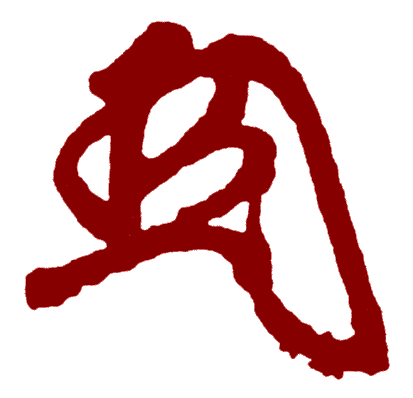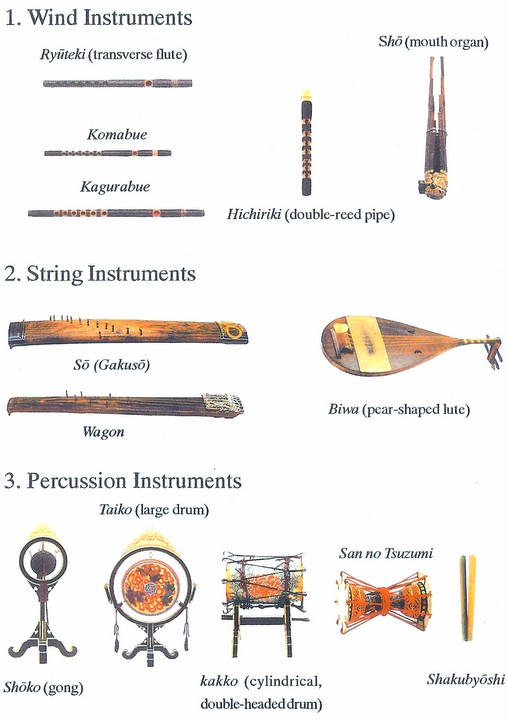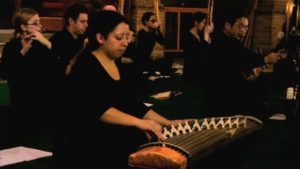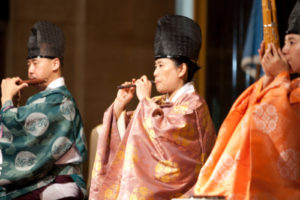
IMJS: Japanese Cultural Heritage Initiatives
Columbia University
Treasuring the Past・Enriching the Present・Transforming the Future

- This event has passed.
Symposium: “Aesthetics in Contemporary Japanese Sound”
Friday, November 10, 2000 @ 5:15 pm - 7:30 pm
Demonstration on the Traditional Japanese Shō
Panel Discussion
Co-sponsored with the Donald Keene Center for Japanese Culture and Music from Japan.
FEATURING
John Rockwell, Music Critic, The New York Times
Mayumi Miyata, Shō Performer
Toshio Hosokawa, Composer
Karen Tanaka, Composer
Lois V Vierk, Composer
Sharon Ann Nakazato, Moderator & Interpreter
JOHN ROCKWELL, KEYNOTE SPEAKER
John Rockwell is the editor of the Arts and Leisure section of The New York Times. A writer, critic, arts administrator and journalist, he was born in Washington, D.C. in 1940 and raised in San Francisco. He attended Phillips Academy in Andover, Massachusetts; Harvard College; the University of Munich; and the University of California at Berkeley, from which he holds a Ph.D. in German cultural history. Following extensive freelance activity in California, he worked for the Oakland Tribune (California) and the Los Angeles Times as a classical music and dance critic before joining The New York Times in 1972. From then until 1991, Mr. Rockwell was a classical music critic for the Times (music editor, 1980-1991), and from 1974 to 1980 he also served as chief rock critic. Between 1992 and 1994, he was based in Paris as the Times’s European cultural correspondent, covering all the arts, as well as serving as the paper’s principal reviewer of classical recordings. In the fall of 1994, Mr. Rockwell left the Times to become the first director of the Lincoln Center Festival, an annual international performing arts festival. He rejoined The New York Times as Arts and Leisure editor in early 1998, having already programmed the 1998 edition of the festival.
Mr. Rockwell has published two books, All American Music: Composition in the Late Twentieth Century, a study of American music from classical to jazz and rock that was nominated for a National Book Critics Circle Award, and Sinatra: An American Classic. He has contributed widely to magazines, anthologies and encyclopedias, among them The New Grove Dictionary of American Music, The New Grove Dictionary of Opera, The Rolling Stone Illustrated History of Rock and Roll and The Virgil Thomson Reader, which he co-edited.
He is a Chevalier of the French Order of Arts and Letters and a member of the Executive Board of the College of Letters and Sciences of the University of California at Berkeley and of the Board of Overseers of Harvard University.
MAYUMI MIYATA, SHO PERFORMER
Mayumi Miyata, Japan’s foremost contemporary sho soloist, was first introduced to the United States at a 1987 recital presented by Music From Japan, and she has since received international acclaim for her artistry. Her instrument, the sho;, is a mouth organ introduced from China in the Nara period (A.D. 710-784) and is associated with gagaku, Japan’s court music. Ms. Miyata is active in promoting new gagaku pieces by Takemitsu, Ichiyanagi, Ishii, Eloy, Cage, Mefano, Yuasa, Hosokawa, Artaud, Staebler and Giuliano, many of which have been written especially for her.
In 1986, Ms. Miyata was the featured artist in Eloy’s four-hour work, “Anahata” (Creation), commissioned for the Festival d’Automne de Paris, and that same year was introduced in a concert series entitled, “Today’s Performer Series IV” in Japan. She is a member of the Tokyo Gakuso and Reigakusha and since 1979, has been taking part in gagaku performances at the National Theatre in Tokyo. In 1983, she was invited to perform as a soloist in the Japanese Arts Festival in six major European cities and also presented her first solo recital in Tokyo. She has given recitals throughout the world, at events including Darmstadt Summer Course, Frankfurt Festival, Donaueschinger Musiktage and Akiyoshidai International Contemporary Music Seminar & Festival. In addition to her appearance in 1987, Ms. Miyata participated in Music From Japan’s 1995 season as a featured performer in New York, Toronto, and Washington, D.C. and also appeared with Reigakusha in the Lincoln Center Festival in 1996.
Mayumi Miyata was born in Tokyo and began learning gagaku after studying as a piano major at Kunitachi College of Music. While still a student, she started to study the sho under Ono Tadamaro of the Imperial Household Agency. Since her debut as a soloist, she has continued to present the distinctive and scintillating sounds of the sho; to an appreciative and ever-growing audience.
THE MODERATOR & INTERPRETER
Sharon Ann Nakazato, who holds Bachelor’s and Master’s Degrees from the University of Michigan, spent eight years studying and working in Japan. She worked for three years as English editor of The East, and has also published articles in both English and Japanese. Her specialties as translator include arts and cultural history, literature and Buddhist studies. She is a licensed teacher of shodo; (Japanese brush calligraphy) and has lectured on many topics in both English and Japanese. She is presently writing and teaching American language and culture to Japanese people and also Japanese language to Americans.
THE COMPOSERS
Toshio Hosokawa, composer, lecturer, and essayist in high repute throughout Europe and Japan, has been credited for creating “a dashing glossary of avant-garde techniques.” He was Composer-in-Residence at the Salzburg Mozarteum and has been a guest composer and lecturer at numerous contemporary music festivals in Europe.
The New York Times recently lauded Karen Tanaka as one of the outstanding young Japanese composers of our time, and also described her work as “dynamic and atmospheric.” A Paris-based composer, she is the recipient of commissions from the BBC Symphony Orchestra and Radio France. She studied composition with Miyoshi Akira in Tokyo, with Tristan Murail in Paris, and with Luciano Berio in Florence.
Lois V Vierk‘s new CD “River Beneath the River” was released by Tzadik Records earlier this year. While she has spent most of her career in New York City, her music has achieved an impressive international reputation. Ms. Vierk was commissioned by the Lincoln Center Festival to compose “Silversword” for the gagaku orchestra, Reigakusha of Tokyo, and by the Barbican Center to compose “River Beneath the River” for the Kronos Quartet. This piece has been performed by the Quartet many times. Music From Japan also commissioned her to compose for percussion and gagaku flute, ryuteki. Among the many other performers and presenters who have commissioned her are Bang On A Can Festival, Ensemble Modern, L’Art Pour L’Art, the Relâche Ensemble, pianists Ursula Oppens, Frederic Rzewski, Aki Takahashi, and Margaret Leng Tan, and accordionist Guy Klucevsek. Ms. Vierk studied gagaku for 10 years in Los Angeles with Mr. Suenobu Togi, formerly of Japan’s Gagaku Imperial Court Orchestra (Kunaicho; gakubu), and in Tokyo for two years with Mr. Sukeyasu Shiba of the same ensemble.




 In conjunction with the Gagaku-Hōgaku Classical Japanese Music Curriculum and Performance Program at Columbia University, launched in September 2006, the Institute for Medieval Japanese Studies presents several public gagaku concerts and instrumental workshops to introduce the ancient music of Japan to a greater audience at Columbia University and in New York.
In conjunction with the Gagaku-Hōgaku Classical Japanese Music Curriculum and Performance Program at Columbia University, launched in September 2006, the Institute for Medieval Japanese Studies presents several public gagaku concerts and instrumental workshops to introduce the ancient music of Japan to a greater audience at Columbia University and in New York.